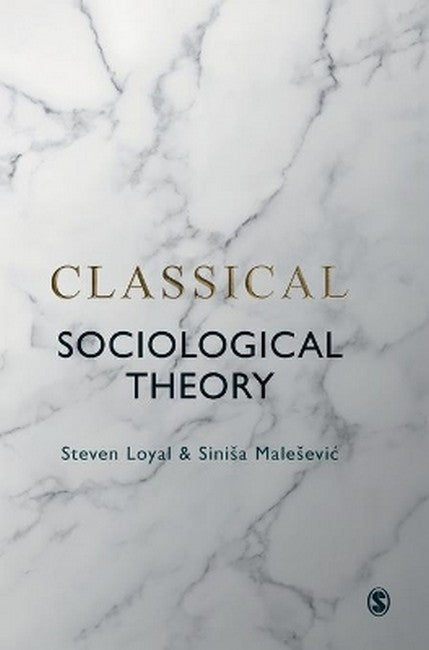Steven Loyal is an Associate Professor in Sociology at University College Dublin Sinisa Malesevic is Professor and Head/Chair of UCD School of Sociology. Previously, he held research and teaching appointments at the Institute for International Relations (Zagreb), the Centre for the Study of Nationalism, CEU (Prague) and at the National University of Ireland, Galway. He also held visiting research fellowships at the London School of Economics and the Institute for Human Sciences (Vienna). He is also a Member of the Royal Irish Academy. Professor Malesevic is a comparative historical and political sociologist whose main research interests include the study of war and organized violence, ethnicity and nationalism, ideology, as well as sociological theory. He has authored six books and has edited or co-edited another five volumes. He has also authored over 60 peer-reviewed journal articles and book chapters.
Request Academic Copy
Please copy the ISBN for submitting review copy form
Description
Plato and Aristotle Confucius and Ibn Khaldun Tocqueville and Martineau Hegel Marx Weber Durkheim Simmel Pareto, Mosca and Michels Hintze, Gumplowicz, Ratzenhofer, Ward and Small Du Bois Mead
I can enthusiastically recommend this thoughtful new survey of classical theorists. Many Western sociologists have argued for broadening the traditional Eurocentric masculine canon: Loyal and Male?evic have actually acted on this. They have addressed those Ancient and Modern writers whose historical context led them to analyse in depth the nature of social reality. Here the great tradition is intriguingly extended - to Confucius, Aristotle and Ibn Khaldun, de Tocqueville, Harriet Martineau and W.E.B. Du Bois - their master ideas being conveyed succinctly, without once lapsing into vulgarisation. -- Bridget Fowler, Emeritus Professor of Sociology, University of Glasgow. Malesevic and Loyal have given us the most comprehensive, accessible, international and up-to-date guide to sociological theory, ancient and modern: a magnificent achievement. -- Professor Emeritus Stephen Mennell, School of Sociology, University College Dublin Two seasoned and very well-established sociologists have written a book that offers a masterly survey of the major social theorist from Plato to such 20th century masters as Habermas, Luhmann and Foucault. Written in a clear and lively style, incorporating historical, political and social context as well as the main ideas of the theorists, this book proves itself a worthy successor to Lewis Coser's very successful Masters of Sociological Thought, whose inspiration it acknowledges. A boon to all students embarking on the study of classical and contemporary social thought. -- Krishan Kumar, University of Virginia These two volumes [Classical Sociological Theory and Contemporary Social Theory] succeed brilliantly where introductory textbooks typically fail. Viewing sociology as a tradition with many variants, they present the lives and works of its ancestors and major exponents across its history to the present. They do so vividly, clearly and accurately, setting the distinctive ideas of each in their historical and intellectual context, commenting on where they continue to have present-day relevance and where they need to be criticized and sometimes rejected. Comprehensive, reliable, precise and concise, they are a much-needed successor to Lewis Coser's magisterial Masters of Sociological Thought. -- Steven Lukes, New York University Loyal and Malesivic offer a tour de force through the rise and transformation of social thought - one that never compromises on social thought's dynamic character, its place in a historical and political context, and the insights it provides into social dynamics of the contemporary world. -- Benedikte Brincker All sociological theory is, at its core, an effort to better understand the social world and our experience within it. As such it may be seen as both an intellectual endeavour and a tool of empowerment. Loyal and Malesevic have brought together key social thinkers from across the ages and drawn out why it is that their theories have been so influential. The authors explain and evaluate sociological theories in light of the thinkers' own social contexts in a way that is both fresh and illuminating. Readers at all levels will appreciate the breadth and ambition of these books, the depth of the authors' research and the quality of their analysis. Classical Sociological Theory and Contemporary Sociological Theory are themselves a remarkable contribution to sociological scholarship. -- Katy Hayward

